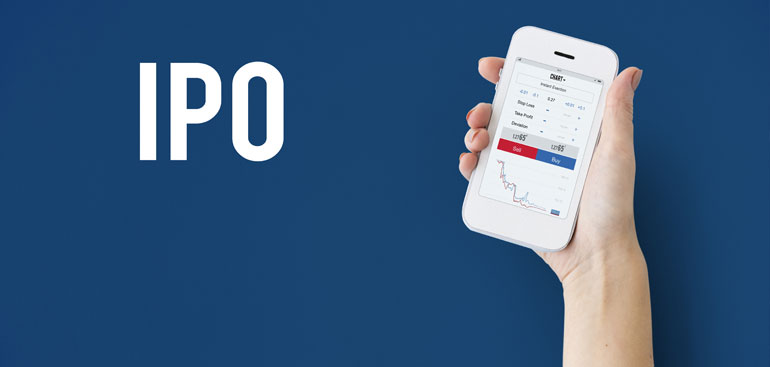Understanding the Role of RTAs in the Financial Ecosystem
Registrar and Transfer Agents (RTAs) play a crucial role in the securities market by managing the records of shareholders and handling the transfer of securities. They act as intermediaries between companies and their investors, ensuring smooth share transfers, dividend payments, and compliance with regulatory requirements.
At Frizcon Capital, we assist businesses in working with RTAs to streamline their IPO processes, investor management, and corporate compliance. Understanding the role of an RTA can help businesses and investors ensure transparency and efficiency in their financial transactions.
Key Functions of a Registrar and Transfer Agent (RTA)
✔ Maintaining Shareholder Records: RTAs keep an updated record of shareholders and their holdings.
✔ Processing Share Transfers & Transmission: They facilitate smooth ownership transfers in case of buying, selling, or inheritance of shares.
✔ Dividend & Interest Payouts: RTAs manage dividend distribution and ensure timely payments to investors.
✔ IPO & Public Issue Management: During an IPO, RTAs handle application processing, allotment of shares, and refund processes.
✔ Compliance & Regulatory Reporting: They ensure that companies comply with SEBI and stock exchange regulations.
✔ Dematerialization & Rematerialization of Shares: RTAs assist in converting physical shares into electronic form and vice versa.
Why Are RTAs Important in the Financial Market?
- Efficiency in Share Transfers: RTAs help in processing transfers smoothly, reducing paperwork and delays.
- Investor Services & Communication: They act as a bridge between companies and investors, addressing grievances and maintaining transparency.
- Ensuring Compliance with SEBI Guidelines: RTAs ensure that companies meet all regulatory requirements regarding investor records and share transactions.
- Facilitating IPOs & Fundraising: For companies launching an IPO, RTAs play a key role in handling share allotment, refunds, and investor relations.
How Frizcon Capital Helps Businesses Work with RTAs?
At Frizcon Capital, we assist companies in effectively coordinating with RTAs for IPO management, investor servicing, and regulatory compliance. Our expertise ensures that your company benefits from:
✅ Seamless IPO Processing – From share allotment to investor refunds, we ensure efficient management.
✅ Compliance Support – We help businesses adhere to SEBI guidelines and regulatory norms.
✅ Investor Record Management – Ensuring transparency and organized shareholder communication.
✅ Corporate Actions Management – Handling dividend payouts, stock splits, and share buybacks with RTAs.
Frequently Asked Questions (FAQs)
1. What is the role of an RTA in an IPO?
RTAs handle IPO share allotment, refund processing, and maintaining investor records, ensuring a smooth listing process.
2. How does an RTA help in share transfer?
RTAs process share transfers between investors, ensuring compliance with regulatory requirements and maintaining updated records.
3. Are RTAs regulated by SEBI?
Yes, RTAs operate under SEBI regulations to ensure transparency and efficiency in handling securities transactions.
4. How do RTAs assist in dividend payments?
They distribute dividends to shareholders on behalf of companies, ensuring timely payouts through bank transfers or cheques.
5. Can businesses outsource their investor record management to RTAs?
Yes, companies work with RTAs to maintain investor data, handle grievances, and ensure compliance with corporate laws.
6. How does Frizcon Capital help businesses coordinate with RTAs?
We guide companies through IPO processes, regulatory compliance, and investor management while ensuring seamless coordination with RTAs.
7. What is the difference between an RTA and a depository?
RTAs handle share transfer and record-keeping, while depositories (NSDL/CDSL) store and manage electronic securities.
8. Do RTAs handle physical share certificates?
Yes, they manage dematerialization (converting physical shares to electronic form) and rematerialization processes.
9. What happens if a shareholder loses share certificates?
RTAs assist in issuing duplicate certificates and verifying ownership through a structured process.
10. Which companies provide RTA services in India?
Major RTAs in India include KFin Technologies, Link Intime India, and Cameo Corporate Services.
Partner with Frizcon Capital for Smooth RTA Coordination
If your company is preparing for an IPO or needs assistance in investor servicing, Frizcon Capital is here to help. We ensure smooth coordination with RTAs, helping businesses meet regulatory standards and investor expectations.
Frizcon Capital – Simplifying Financial Transactions with Expert RTA Coordination!



